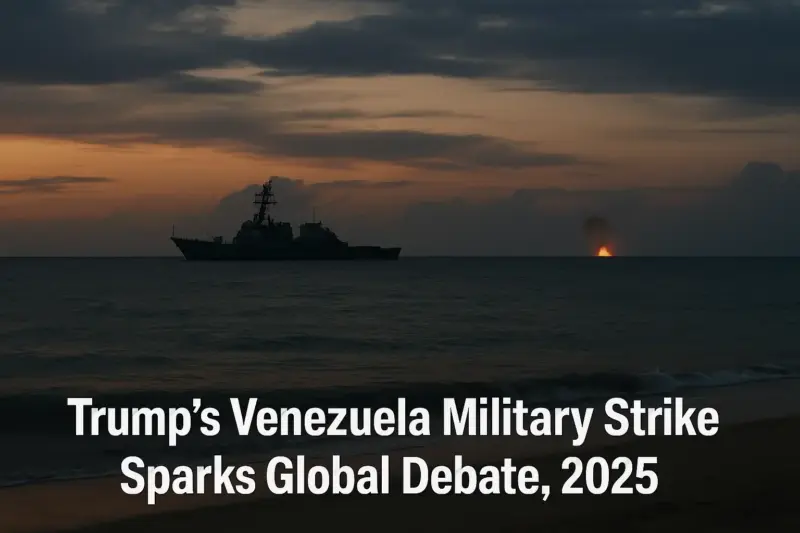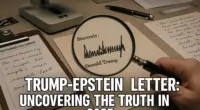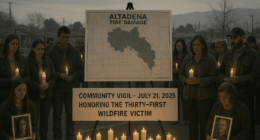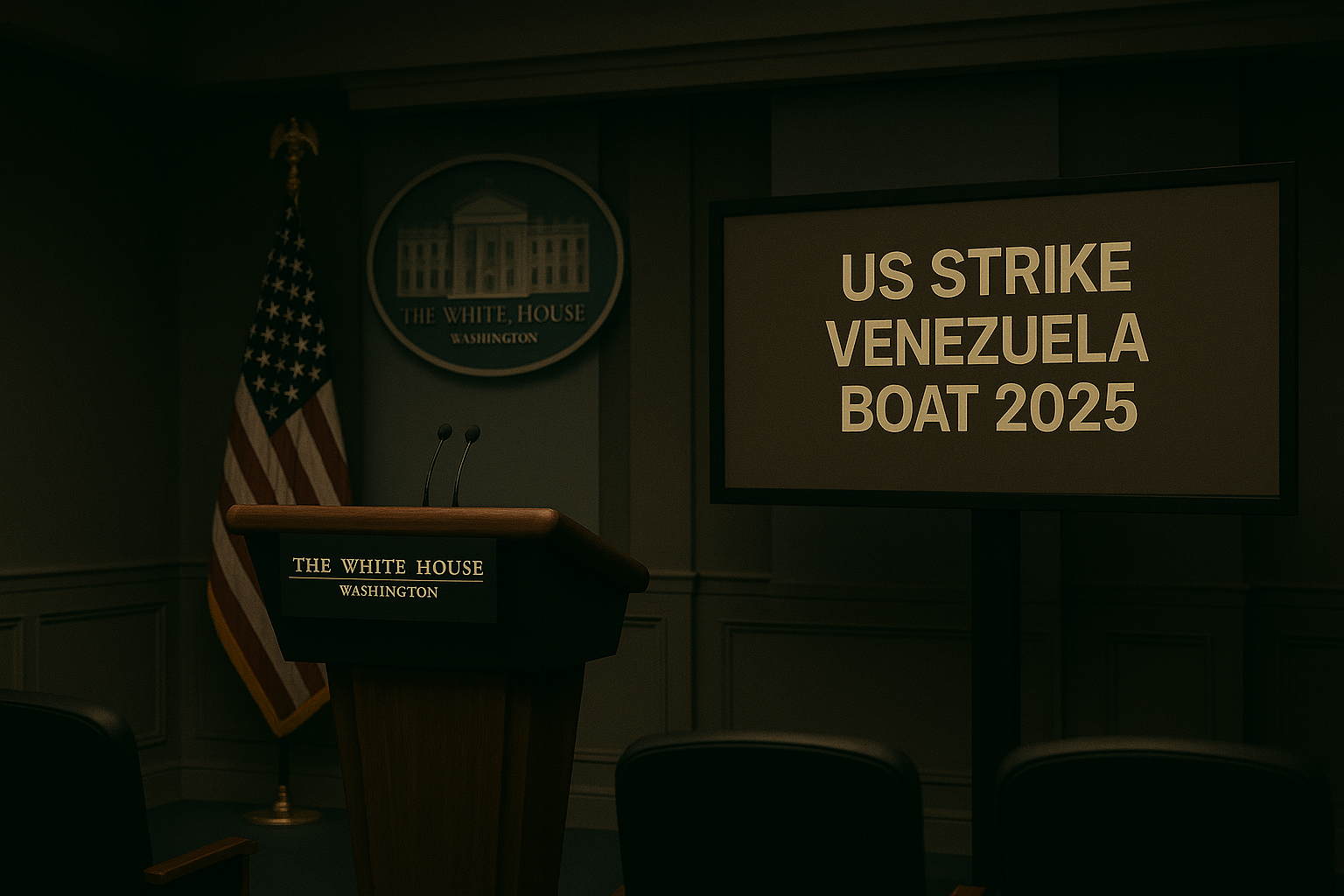A Caribbean Strike Ignites Controversy
On September 2, 2025, President Donald Trump ordered a lethal military strike on a boat in the Caribbean, claiming it was operated by Venezuela’s Tren de Aragua, a designated terrorist organization, and carrying drugs to the U.S. The attack, which killed 11 people, has raised alarms over its legality under the War Powers Act and international law, with critics labeling it a potential war crime. As Trump’s military buildup in the Caribbean escalates tensions with Venezuela, the lack of transparency and congressional oversight fuels a broader debate about unchecked presidential power. What does this mean for U.S. foreign policy and global relations?
The Human Toll: Lives Lost, Questions Unanswered
The Venezuela military strike left 11 dead, with no survivors to clarify who they were or what the boat carried. Trump shared grainy drone footage on Truth Social, showing a speedboat exploding, but provided no evidence of drugs or cartel ties. For Venezuelans, the strike is a grim reminder of U.S. interventionism, with President Nicolás Maduro calling it an “extrajudicial killing” and mobilizing 340,000 troops and 8 million militia members in response. Families of the deceased, if civilians, face uncertainty, as the U.S. has not released identities or proof of criminal activity, leaving communities on both sides of the Caribbean grappling with fear and distrust.
Facts and Figures: A Murky Operation
The strike occurred in international waters, executed by an unspecified U.S. military unit, possibly involving a Reaper drone or attack helicopter. Trump notified Congress within 48 hours, as required by the War Powers Act of 1973, but the Pentagon canceled planned briefings with House and Senate committees, leaving lawmakers without legal justification details. The administration cites Article II of the Constitution and the 2001 Authorization for Use of Military Force (AUMF) to justify targeting Tren de Aragua, designated a terrorist organization in February 2025. However, Congress has not authorized force against Venezuelan cartels, and experts argue the AUMF does not apply to non-9/11-related groups. The U.S. deployed seven warships, one nuclear-powered submarine, 10 F-35 jets, and 4,500 troops to the Caribbean, per Reuters, escalating tensions after Venezuelan F-16s buzzed a U.S. destroyer on September 5.
The Broader Context: A Dangerous Precedent
The Trump military buildup in the Caribbean reflects a broader strategy to pressure Maduro, accused of rigging Venezuela’s 2024 election. Secretary of State Marco Rubio and Defense Secretary Pete Hegseth have signaled more strikes, framing cartels as terrorists to justify lethal force. Critics, including Yale’s Oona Hathaway, call the strike “manifestly illegal” under international law, as the U.S. did not attempt interdiction or detention, violating the UN Charter’s Article 2(4) prohibition on force except in self-defense. A May 2025 National Intelligence Council report contradicts claims of Maduro directing Tren de Aragua, noting Venezuela’s “permissive environment” instead. The War Powers Act limits unauthorized military actions to 60 days, extendable by 30, but Trump’s vague notifications raise concerns about prolonged campaigns without oversight.
What Lies Ahead: Escalation or Restraint?
The Venezuela military strike risks escalating into a broader conflict, with Maduro vowing a “republic in arms” if attacked. Congress could demand approval under the War Powers Act, but with only Senator Rand Paul and Democrats opposing similar actions against Iran, political will is weak. The Supreme Court’s deference to Trump’s authority, as seen in prior rulings, may embolden further strikes. Experts urge transparency, independent investigations, and adherence to international law to prevent a “disastrous” intervention, as warned by former Biden aide Juan González. The administration’s pivot to treating cartels as combatants could reshape U.S. policy, potentially normalizing lethal force against non-state actors.
Restoring Accountability
To avoid escalation, Congress must assert its war powers, demanding detailed justifications and evidence for strikes. An independent probe into the September 2 incident could clarify its legality and rebuild trust with allies wary of U.S. unilateralism.
Conclusion: A Test of Power and Principle
The Trump military buildup in the Caribbean and the lethal strike on a Venezuelan boat challenge the boundaries of presidential authority and international law. Without clear evidence or congressional approval, the Venezuela military strike risks destabilizing the region and eroding global trust. As tensions mount, the U.S. must balance its fight against drug trafficking with legal and ethical responsibilities to prevent a slide into unauthorized conflict. The world is watching—will accountability prevail?






